Keywords: Suicide
There are more than 200 results, only the first 200 are displayed here.
-

RELIGION
- Frank Brennan
- 17 April 2017
Following the passing of the Australian comedian and social commentator, John Clarke, his co-presenter Bryan Dawe talked about being on a tram in Melbourne with people nodding compassionately and knowingly at him. Bryan recalled that an old man had once commented to John, 'You know what you two do? It's a secret between you and the audience.' These are not the sorts of things we expect to hear when someone is still alive. Once they are dead, those who love and admire them recall all sorts of details about their life, finding new meaning and new depth even in the everyday things.
READ MORE
-
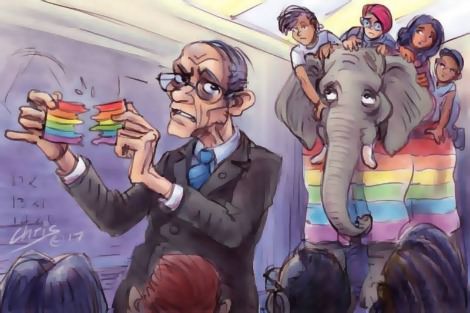
EDUCATION
- Neve Mahoney
- 06 April 2017
20 Comments
Recently Gilbert Baker, the man who designed the rainbow pride flag, died. The flag was designed to be a symbol for the LGBTIQ movement, representing the diversity of the community. Within the same news cycle, it was reported that Catholic Notre Dame University in Sydney had had pride flag stickers torn down from its student association office. Schools' main concern should be the welfare of students, but that is difficult when they have an arm tied behind their backs in regards to LGBTIQ students.
READ MORE 
-

ARTS AND CULTURE
- Tim Kroenert
- 30 March 2017
1 Comment
A film about a lonely widower who repeatedly attempts suicide seems like a grim proposition. Ove has suffered one too many blows in his life, the latest being the loss of his job. He finds himself at a loose end, if not purposeless. He is the self-appointed overseer of the gated community where he has lived for years, enforcing protocols of behaviour among his terrorised neighbours. Now he's had enough, and decides to join his beloved wife Sonja, in eternity. But dying doesn't come easily to Ove.
READ MORE 
-

RELIGION
- Frank Brennan
- 29 March 2017
1 Comment
'We need to be more focused on grace, Christ and God's word, rather than just on law, the Church and papal utterances. But today, I will draw more on law, the Church and the Pope to point us towards those more fruitful domains: grace, Christ and God's word. Our future visioning needs to focus more on the gospel imperatives including the option for the poor and the dignity of all persons, including those who are non-believers.' Address to Catholic Health Australia's Catholic Governance Symposium, 27 March 2017
READ MORE
-

RELIGION
- Michael McVeigh
- 17 March 2017
7 Comments
No conversation on marriage equality should begin from any place other than that same-sex attracted people are equal in dignity, and worthy of the same respect, as heterosexual people. But religion has to be included in the conversation, as marriage equality isn't just a civil rights issue, it's a biblical and theological one. People who hold biblical or theological views on marriage aren't going to be convinced by arguments that don't respect those views.
READ MORE 
-

AUSTRALIA
- Naomi Fryers
- 10 February 2017
10 Comments
In my mid-20s, I sectioned under the Mental Health Act into the public inpatient system. The experience is so etched in my mind that it wasn't until recently, half a decade on, that I finally managed to shake the residual anxiety. A single admission to the public mental health system saw me crippled by Post Traumatic Stress Disorder. By contrast, I've never had an inpatient admission to a private psychiatric hospital where I haven't been discharged in comparative good health.
READ MORE 
-

RELIGION
- Frank Brennan
- 06 February 2017
17 Comments
Listening to the media and our church leaders in recent days, we know that there is plenty of darkness ahead for our Church in the weeks ahead with the Royal Commission's so-called 'Catholic wrap-up'. We're told that the statistics will be terrible and we expect that some of our church leaders will appear, looking stunned and helpless. This morning, I think we need to reflect on these stark realities in the light of the scriptures. And this can be done only by holding the victims clearly in focus.
READ MORE
-
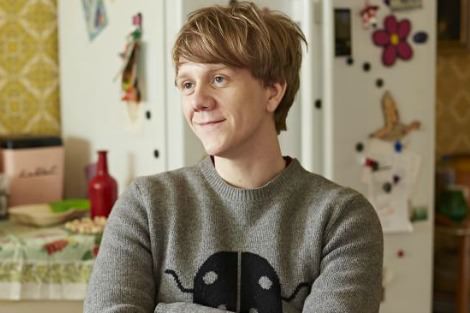
MEDIA
- Adolfo Aranjuez
- 29 November 2016
17 Comments
A recent Screen Australia report determined only 5 per cent of characters in Australian TV dramas could be identified as LGBTQI; less than half the proportion of real-world queer individuals in Australia. Media products are inherently normative, legitimising identities and lived realities through visibility. This is important, given the continuing debates surrounding marriage equality and the pervasiveness of homophobia, the result of which was seen in the suicide of 13-year-old Tyrone Unsworth.
READ MORE 
-
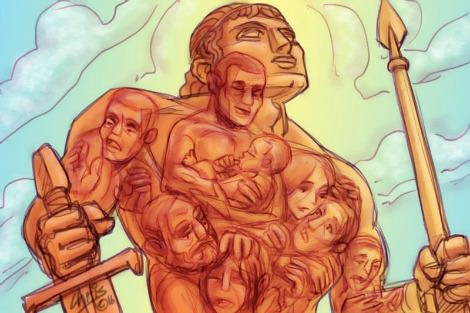
AUSTRALIA
- Adolfo Aranjuez
- 28 October 2016
10 Comments
After sending me to live in Australia, my father tasked my then brother-in-law (a true-blue 'bloke') with teaching me to 'be a man'. He failed, but here was evidence of hegemonic masculinity's perpetuation. My father and I were born into a masculine culture that, unlike Australia's stoicism, is characterised by braggadocious chest-puffing. Yet underpinning both Australia's and the Philippines' conceptions of masculinity is the masking of vulnerability: emotions hide behind silence and bravado.
READ MORE 
-
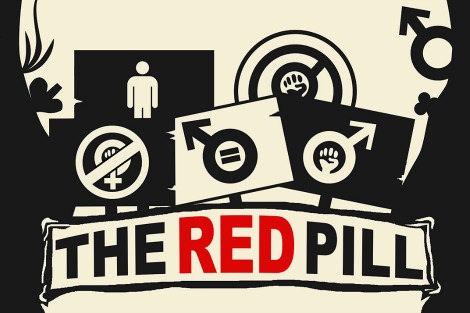
AUSTRALIA
- Neve Mahoney
- 27 October 2016
24 Comments
The 'men's rights' documentary The Red Pill has been pulled from Melbourne's Palace Kino cinema, sparking debate over censorship and what constitutes partisan reporting. The men's rights movement holds that 'feminism has gone too far', to the point that men are discriminated against. Since the internet and the third wave of feminism, the majority of MRA groups seem to be little more than a veil for misogynists to legitimise their sexism. It's a shame, because there are some MRA groups who raise real issues.
READ MORE 
-
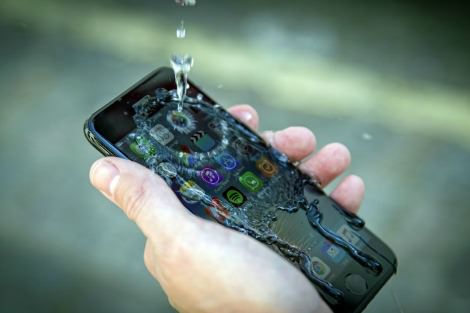
ENVIRONMENT
- Megan Graham
- 19 September 2016
5 Comments
Apple has been in hot water for years about the ethics of the manufacture of their devices. Yet iPhone fans gleefully fork out more money every September when the next version is ceremoniously revealed. This circus has become so normalised, most of us hardly blink an eye. How many people ask themselves whether the upgrades in the technology are worth getting a new phone every year? More importantly, how many people question the real-world costs that their purchase entails?
READ MORE 
-
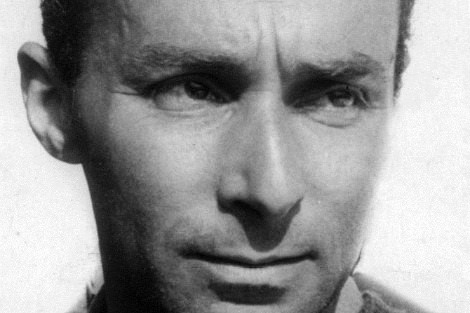
AUSTRALIA
- Brian Matthews
- 25 July 2016
10 Comments
Holocaust survivor Primo Levi wrote If This is a Man to carry out what he saw as the critical task of bearing witness, and he became one of the greatest writers of the 20th century as he continued to bear witness one way and another in later books. Some day, one of Australia's asylum seekers will, like Levi and with the same sense of dread and horror, tell his or her story to ensure that someone bears witness; and to confirm that all of us are implicated.
READ MORE 